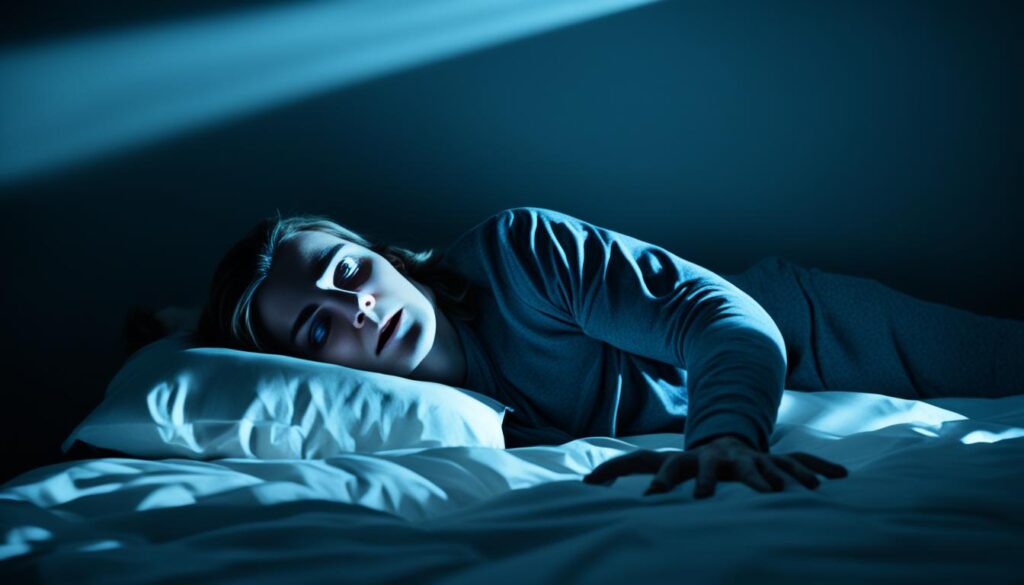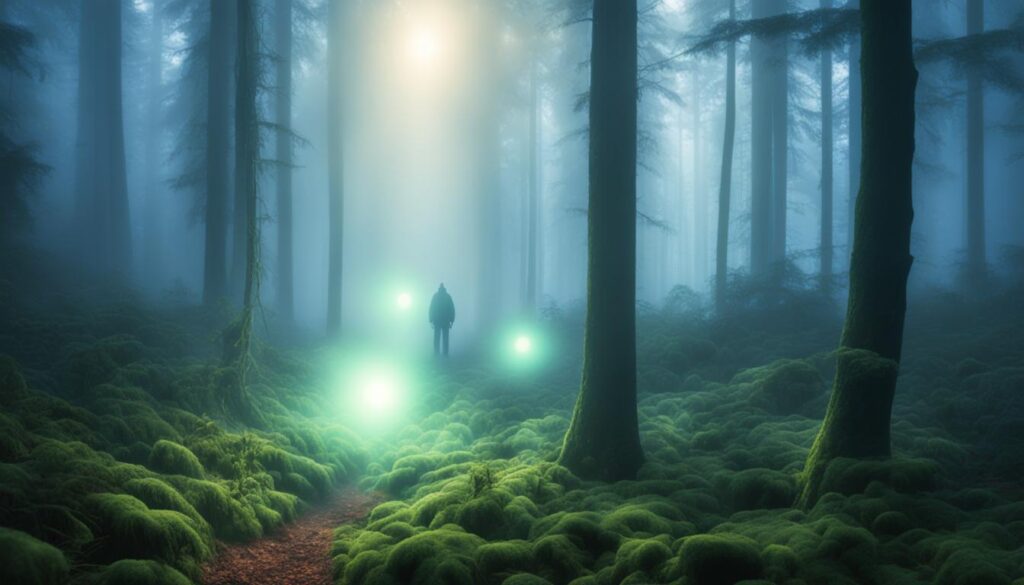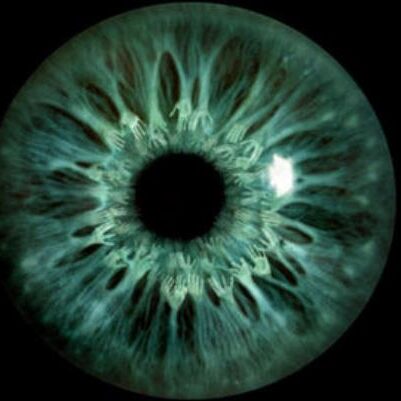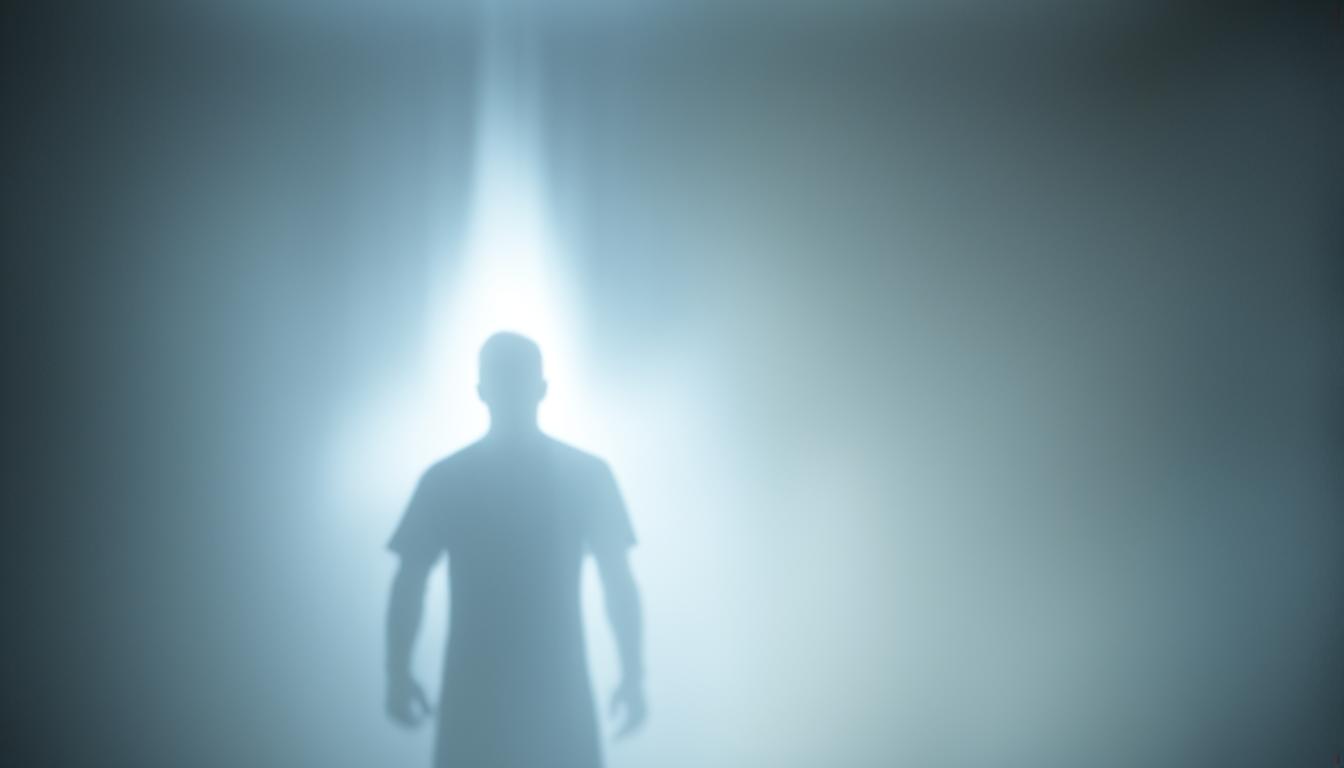Have you ever heard a strange noise in the middle of the night or seen something move by itself? If yes, you’re not alone. A recent poll by YouGov found that almost two-thirds of Americans have had some kind of paranormal experience. This includes everything from seeing ghosts to having psychic abilities.
These experiences can be both exciting and a bit scary. It’s key to figure out if they’re real paranormal events or just our minds playing tricks on us. In this article, we’ll look into what paranormal experiences are, the science behind them, and how to tell what’s real and what’s not.
Key Takeaways
- Approximately 41% of American adults believe in ghosts, and 20% claim to have personally experienced them.
- Paranormal experiences are often influenced by factors like emotional arousal, prior beliefs, and human senses’ limitations.
- Alleged ghostly encounters can be explained by things like bad lighting, faulty equipment, and optical illusions.
- Physicists suggest ghosts cannot exist based on our understanding of physics.
- Even rational individuals can hold beliefs in the paranormal, suggesting it’s a complex phenomenon.
Understanding Paranormal Experiences
Paranormal experiences are events that science can’t explain. They often involve the supernatural, like ghosts or spirits. People might hear strange sounds, see moving objects, or feel cold spots without a logical reason.
What Are Paranormal Experiences?
These experiences are things that science can’t explain. Many people feel strange sensations or see things that seem supernatural. There’s no solid proof of paranormal activity, but these feelings and sights are real to those who experience them.
Common Types of Paranormal Phenomena
- Hearing unexplained sounds or voices
- Seeing moving objects or apparitions
- Sensing a presence or feeling of being watched
- Experiencing unexplained temperature changes or electrical disturbances
- Sleep paralysis leading to stress and scary hallucinations
These experiences can be scary and make people wonder about the unknown. While we debate whether ghosts exist, some events are hard to explain. They suggest there might be things we don’t fully understand.
| Paranormal Statistic | Percentage |
|---|---|
| Americans who report having experienced a paranormal encounter | Nearly two-thirds |
| Individuals who claim to have seen a spirit or ghost | One in five |
| Paranormal TV shows featuring psychic and medium Chip Coffey | Over 130 |
Whether these experiences are real or just in our heads, they keep us curious. They challenge what we think we know about the world.
Belief in the Paranormal
Many people believe in the paranormal, as shown by surveys and statistics. A 2019 YouGov poll found 45% of Americans believe in ghosts. In the UK, a 2016 YouGov study showed more people believe in ghosts than in God’s existence. This means over 50 million people in the U.S. have seen something paranormal.
Belief in the supernatural goes beyond just ghosts. A 2005 poll said 37% of Americans believe in haunted houses. A 2010 European Commission survey found two out of five Europeans are superstitious. A 2013 study at the University of British Columbia linked believing in ghosts to anthropomorphizing objects.
Psychological factors also influence paranormal beliefs. Dr. James Houran’s 1990s study found priming can make people believe in the paranormal. People with a high magical ideation score tend to believe more in the supernatural. They focus on evidence that confirms their beliefs.
| Statistic | Finding |
|---|---|
| 2019 YouGov poll | 45% of Americans believe in ghosts |
| 2016 YouGov poll in the UK | Britons are more likely to believe in spooky spirits than in the existence of God |
| 2005 poll | 37% of Americans believed in “haunted houses” |
| 2010 European Commission survey | Two in five Europeans considered themselves to be superstitious |
| 2013 study at the University of British Columbia | People with a higher tendency to anthropomorphize non-human objects are more likely to believe in ghosts |
| 1990s study by Dr. James Houran | People are more likely to believe in the paranormal if they have been “primed” |
Some people doubt the existence of the paranormal, but the data shows it’s a big part of public belief. Many believe in ghost sightings and other supernatural events.
How Can You Tell if a Paranormal Experience is Real?
Figuring out if a paranormal experience is real can be tough. There are many possible reasons and things to think about. But, experts say there are some signs that might show a true paranormal encounter.
One key sign is seeing unexplained physical phenomena. This includes things moving by themselves or strange noises. Another sign is feeling an unknown presence around, even if you can’t see anything.
If you can’t explain what happened with normal reasons or mistakes, it might mean something extraordinary is happening. You need to think deeply and look for other, non-supernatural reasons before thinking it’s paranormal.
Remember, proving a paranormal experience is real is hard and can be personal. It’s important to be open-minded and skeptical. This helps you critically assess the signs of real paranormal activity.
Critical thinking and being open to other explanations are crucial in figuring out if a paranormal experience is real. By looking closely at what happened, you can understand what you really experienced.
Scientific Explanations for Paranormal Events
Many paranormal experiences seem hard to explain. Scientists look into physical and psychological factors behind them. Physics says ghosts or spirits don’t fit our current understanding of the universe. Parapsychologists study psychic abilities and paranormal claims. But, they say we need strong evidence for such claims.
The Role of Physics and Parapsychology
A 2013 Harris Poll found 42 percent of Americans believe in ghosts. Some think infrasound, sounds below what we can hear, can make us feel scared or uneasy. This could explain ghostly feelings. Also, weak magnetic fields can make people feel an unseen presence, linking to electromagnetic fields and paranormal experiences.
Social psychology shows how suggestion can make people think they’ve seen something supernatural. Sleep paralysis can make people see things that aren’t there. Carbon monoxide poisoning can cause hallucinations and headaches, similar to paranormal feelings.
Scientists are still debating the causes of paranormal events. While some theories suggest physical and psychological reasons, we’re not sure if science can fully explain everything.
Evidence and Investigations
Cameras and recording devices have given us a lot of paranormal evidence. But, experts say most of this evidence has natural causes or tech issues. Dust, lighting, and audio noise can make it seem like there’s paranormal phenomena. When looking into paranormal claims, we must think about the recording’s quality and the situation it was taken in. We should also check if there are other reasons for what we see or hear.
Evaluating Photographic and Audio Evidence
Looking at ghost photos and recordings needs a careful eye. Camera settings, lighting, and the setting can make things look paranormal. Experts suggest looking at:
- The overall quality and clarity of the image or recording
- Whether the phenomenon can be explained by natural causes like dust, reflections, or camera artifacts
- Whether the evidence was captured in a controlled environment or under questionable conditions
- Whether the investigator has a history of producing credible paranormal evidence
The best paranormal evidence is what passes scientific tests and can’t be explained easily. By carefully investigating paranormal claims and analyzing ghost photos and recordings, researchers can tell what’s real and what’s not. This helps us understand the mysteries of the supernatural.
“Paranormal investigation functions as a spiritual practice for many participants, allowing them to root their spiritual beliefs in evidence and perceive themselves as part of a pioneering scientific field.”
– Associate Professor of Sociology Marc Eaton
Alternative Explanations for Paranormal Experiences
When people have strange experiences they can’t explain, there are often simpler reasons. Things like bad lighting, being very emotional, not sleeping well, and more can make us think of ghostly encounters. Looking closely at what happened and where can often show us what really caused it.
Sleep paralysis is a common issue that can make people think of ghosts. A 2005 Gallup poll found that most Americans believe in something paranormal. A study found that 42% of a British university group had had a paranormal experience. Sleep paralysis happens to 7.6% of people and can make them see things and feel a scary presence, which they might think is supernatural.
Also, misperceptions from bad lighting, feeling very emotional, and other things can make us see things that aren’t there. Research shows that not sleeping well can make sleep paralysis more likely. This can make it hard to tell what’s real and what’s not.
We should keep an open mind but also think carefully before saying an experience is paranormal. By understanding the psychological factors and common mistakes in seeing things, we can better see how the natural and supernatural mix.

“Sleep paralysis is associated with hallucinations, with parts of the brain producing dream imagery despite wakefulness.”
| Reason | Explanation |
|---|---|
| Sleep Paralysis | A sleep disorder that can cause hallucinations and a sensation of a menacing presence, often mistaken for supernatural phenomena. |
| Misperceptions | Ordinary occurrences can be misinterpreted as paranormal due to factors like poor lighting, emotional states, and environmental conditions. |
| Sleep Disturbances | Poor quality sleep and sleep disturbances increase the likelihood of experiencing sleep paralysis and other phenomena that can be perceived as paranormal. |
Ghosts and Spirits
Ghosts and spirits have always caught our attention, making us wonder about life after death. Experts say ghosts are the souls of people who have died but didn’t move on. They often show up as transparent figures or lights, drawn to places full of strong feelings or importance to them.
What Are Ghosts?
Ghosts are seen as the lingering souls of those who have died. They can take many forms. Most ghosts are like family members or historical figures we know. Some are seen as mist or orbs, often in places like cemeteries or old battlefields.
Reasons Why Ghosts May Linger
- Unresolved trauma or strong emotional attachments to a place or object
- A lack of understanding that they have passed on, resulting in a failure to move on to the afterlife
- A desire to communicate with or provide guidance to the living
- Environmental factors, such as the energy or history of a location, that may draw spirits to linger
Whether or not ghosts exist is still debated, but many believe in their presence. The number of ghost stories and beliefs in the paranormal show there might be more to our world. Researchers keep looking into these mysteries, trying to understand them better.
| Paranormal Phenomenon | Description |
|---|---|
| Poltergeists | Known as “noisy ghosts,” these rare occurrences are recognized for their ability to move objects, create loud sounds, and manipulate the physical environment, sometimes escalating from mild activity to dangerous occurrences. |
| Orbs | Transparent or translucent balls of light believed to be the souls of the deceased, frequently photographed and considered to be the initial appearance of a spirit before materializing fully. |
| Funnel Ghosts or Vortexes | Typically associated with cold spots in homes and historical buildings, taking on the shape of swirling funnels or spirals of light, often believed to be returning loved ones or former residents of the location. |
“13% of the population has had ghostly encounters, and research on this phenomenon is ongoing due to its complex nature.”
Experiences with Loved Ones
Many people have had amazing experiences they think are with their deceased loved ones. These can be feeling a comforting presence, getting messages, or even seeing them. Experts say these feelings might come from grief, memory, and our deep wish to stay connected with those who are gone.
But, some strange experiences, like feeling a loved one’s death before it happens or finding strange coincidences, can’t be explained by normal psychology. A recent survey found 41% of Americans believe in ghosts, and 20% say they’ve met one. This shows many people think we can connect with our loved ones after they’re gone.
“I felt my grandmother’s presence so strongly after she died. It was as if she was trying to comfort me and let me know she was still with me in some way.”
Whether these feelings are just our minds playing tricks or real paranormal events, believing we can connect with those who have passed is common. This belief helps us cope with life and death mysteries. It gives us hope and makes us feel our loved ones are still with us.

The science world doubts the paranormal, but personal stories of meeting loved ones’ spirits can’t be ignored. As we delve into human experience and consciousness, the paranormal might show us new truths about our world and what comes after life.
Dealing with Paranormal Activity
If you think you’re having real paranormal experiences, there are steps you can take. You might want to get help from paranormal investigators, psychics, or mediums. They know how to spot and deal with supernatural stuff.
Seeking Help from Experts
Some folks look to religious or spiritual leaders for advice on coping with paranormal experiences or dealing with haunted homes. But, be careful and choose wisely. There are many people claiming to be experts who might not really know what they’re doing.
A 2021 poll found that 41% of American adults believe in ghosts, and 20% have had their own ghostly encounters. This shows that many people look for help with paranormal activity.
“While there is an increase in ghost encounters being recorded due to high-tech devices like mobile phone cameras, there still lacks substantial scientific evidence supporting the existence of ghosts.”
Ghost hunters often see strange things as proof of ghosts, but they don’t always have solid evidence. It’s smart to be skeptical and get advice from experts who can give you a fair view.
By getting the right advice and help, you can understand and deal with paranormal activity in your home or elsewhere. With the right steps, you can manage and maybe even fix these strange happenings.
The Psychology of Paranormal Beliefs
The study of paranormal beliefs has caught the eye of psychologists. They look into how our thoughts, feelings, and social circles affect our beliefs in the supernatural. Things like confirmation bias, being easily influenced, and seeking meaning in mysteries play a big part.
Culture, personal stories, and how the media shows the paranormal also shape our beliefs. A BMG Halloween Poll in the UK in 2017 showed a third of people believe in ghosts and other paranormal stuff. A study in Austria in 2011 found links between believing in the paranormal, creationism, and evolution in schools. This shows how complex these beliefs can be.
Cognitive biases, like those in paranormal beliefs, keep these beliefs alive. For instance, the ideomotor effect can explain how our muscles move on their own when using Ouija boards or during seances.
| Country | Paranormal Belief Prevalence |
|---|---|
| United Kingdom | 33% believe in ghosts, spirits, or other paranormal activity |
| Austria | Relationships between paranormal belief, creationism, intelligent design, and evolution among secondary school students |
| United States | 20% believe that ghosts definitely exist, and another 25% say they probably exist |
Learning about these psychological aspects helps us understand why so many believe in the paranormal. It shows us the deep roots of these beliefs and how they shape our view of the world.
“Paranormal beliefs are quite widespread, with a significant proportion of the population reporting experiences or beliefs in the supernatural.”
Conclusion
Figuring out if your ghostly encounter is real can be tough. Many Americans say they’ve seen ghosts or spirits. But, there might be other reasons that explain these events. By thinking critically and looking at both science and psychology, you can understand your experiences better.
The study of critical thinking for supernatural claims is growing. Yet, the debate on understanding the nature of paranormal phenomena is ongoing. A lot of people believe in ghosts, but there’s no solid proof for this. So, it’s key to look at these claims with a careful eye.
The mystery of the paranormal is still out there, waiting to be solved. By being open but also skeptical, you can learn more about the mix of the physical, mental, and spiritual worlds. This helps us understand where the known and unknown meet.
FAQ
What are paranormal experiences?
Paranormal experiences are events that science can’t explain. They often involve ghosts, spirits, or other mysterious entities.
What are the common types of paranormal phenomena?
Common paranormal phenomena include hearing strange sounds or voices. People also report seeing moving objects or apparitions. Others sense a presence or feel sudden temperature changes or electrical issues.
How widespread is belief in the paranormal?
Many people believe in the paranormal. A 2021 poll showed 41% of Americans believe in ghosts. About 20% said they’ve had a ghostly encounter.
How can you tell if a paranormal experience is real?
Figuring out if a paranormal experience is real is tough. Look for unexplained physical phenomena, a strong unknown presence, and events that can’t be explained by science or mistakes.
How do scientists and researchers explain paranormal events?
Scientists say ghosts or spirits don’t fit our current understanding of the universe. Researchers have looked into psychic abilities and paranormal claims. But they say they need strong evidence to believe these claims.
How reliable is photographic and audio evidence of paranormal activity?
Most photos and recordings of paranormal activity have natural explanations. It’s key to check the quality of the evidence and if other reasons could explain it.
What are the alternative, non-supernatural explanations for paranormal experiences?
Things like bad lighting, being emotional, having trouble sleeping, or just seeing things can make us think of ghosts. Looking closely at what happened can often find a normal explanation.
What are ghosts, and why are they believed to linger?
Ghosts are thought to be the spirits of people who have died but didn’t move on. They’re seen as transparent or as orbs of light. They’re drawn to places that mean a lot to them or have strong feelings.
What experiences do people have with the spirits of deceased loved ones?
Some people feel they’ve met the spirits of loved ones who have passed away. They might sense a comforting presence, get messages, or have vivid meetings. These experiences can bring comfort but can also be influenced by grief and the wish to stay connected.
How can people deal with paranormal activity?
If you think you’re dealing with paranormal activity, there are steps to take. You could get help from paranormal investigators or psychics. But be careful and choose your helpers wisely, as not everyone claiming to be an expert is truly qualified.
What psychological factors contribute to paranormal beliefs and experiences?
Many factors can make people believe in the paranormal. These include biases, being easily influenced, altered states of mind, and wanting to understand mysteries. Culture, personal stories, and how the media shows the supernatural can also affect our beliefs.
Source Links
- Are ghosts real? A social psychologist examines the evidence – https://sc.edu/uofsc/posts/2023/10/conversation-are-ghosts-real.php
- Psychology: The truth about the paranormal – https://www.bbc.com/future/article/20141030-the-truth-about-the-paranormal
- 10 Signs Your House Is Haunted (And What to Do About It) – https://www.teenvogue.com/story/10-signs-your-home-may-be-haunted
- Questions about Paranormal Activity – Kathryn Hulick – https://kathrynhulick.com/questions-about-paranormal-activity/
- Are ghosts real? What to know on hauntings and paranormal activity – https://www.today.com/life/holidays/are-ghosts-real-rcna105804
- Individuals Who Believe in the Paranormal Expose Themselves to Biased Information and Develop More Causal Illusions than Nonbelievers in the Laboratory – https://www.ncbi.nlm.nih.gov/pmc/articles/PMC4503786/
- Ghostbusters: A psychologist explains why we believe in the paranormal – https://www.sciencefocus.com/science/ghostbusters-paranormal-belief
- Why Some People See Ghosts But Others Never Do – https://www.psychologytoday.com/us/blog/out-of-the-ooze/202110/why-some-people-see-ghosts-but-others-never-do
- The science of ghosts – https://www.snexplores.org/article/science-ghosts
- Five Scientific Explanations for Spooky Sensations – https://www.smithsonianmag.com/smart-news/five-scientific-explanations-spooky-sensations-180973436/
- Science of the Paranormal: Can You Trust Your Own Mind? – https://www.livescience.com/52641-science-of-paranormal-ghosts.html
- No title found – https://ripon.edu/2023/10/30/marc-eaton-shares-expertise-on-examination-of-paranormal-investigations/
- Paranormal experiences, sensory-processing sensitivity, and the priming of pareidolia – https://www.ncbi.nlm.nih.gov/pmc/articles/PMC9473424/
- Paranormal Belief, Thinking Style and Delusion Formation: A Latent Profile Analysis of Within-Individual Variations in Experience-Based Paranormal Facets – https://www.ncbi.nlm.nih.gov/pmc/articles/PMC8273333/
- Close Encounter or Just Half Sleep? How Scientific Inquiry Can Inform Paranormal Experiences | Center for the Advanced Study of Human Paleobiology | Columbian College of Arts & Sciences | The George Washington University – https://cashp.columbian.gwu.edu/close-encounter-or-just-half-sleep-how-scientific-inquiry-can-inform-paranormal-experiences
- Types Of Ghosts and Spirits – https://www.ghostsandgravestones.com/types-of-ghosts
- Do Ghosts Really Exist? | UWG – https://www.westga.edu/news/alumni-and-friends/ghosts.php
- Two-thirds of Americans say they’ve had a paranormal encounter | YouGov – https://today.yougov.com/society/articles/44143-americans-describe-paranormal-encounters-poll
- What’s Really Behind Paranormal Experiences (Hint: It’s Not Ghosts) – https://www.livescience.com/14904-paranormal-experiences-hint-ghosts.html
- Paranormal beliefs and cognitive function: A systematic review and assessment of study quality across four decades of research – https://www.ncbi.nlm.nih.gov/pmc/articles/PMC9067702/
- Ghosts, Ouija boards, and ESP: Psychology and the paranormal, with Chris French, PhD – https://www.apa.org/news/podcasts/speaking-of-psychology/paranormal
- Are Ghosts Real? – https://wonderopolis.org/wonder/are-ghosts-real
- Do you believe in ghosts? We explain the science of spirits | Cronkite News – https://cronkitenews.azpbs.org/2016/10/31/do-you-believe-in-ghosts-we-explain-the-science-of-spirits/

